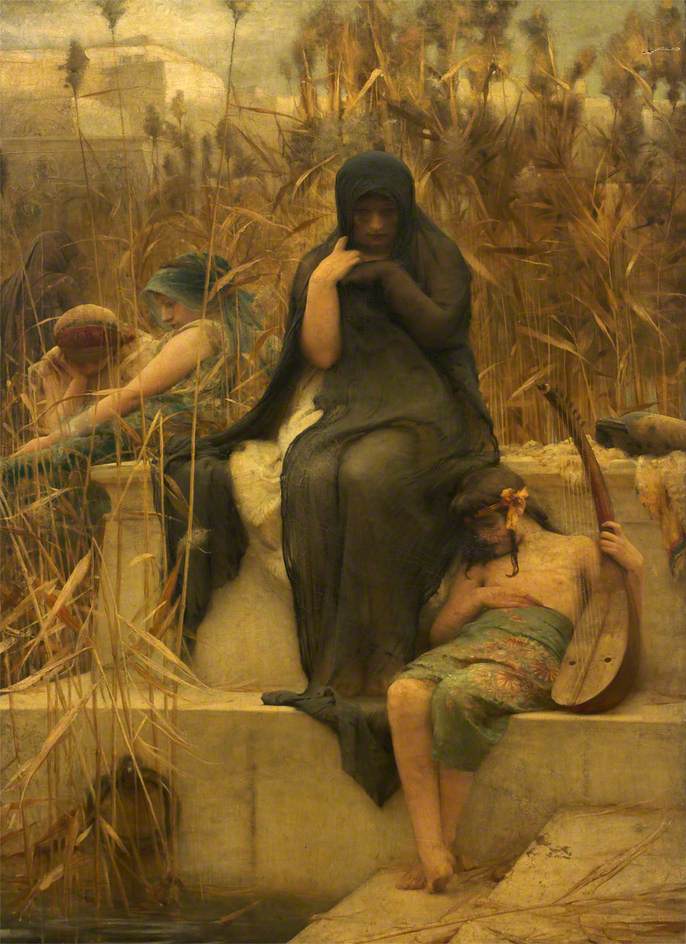Septuagesima is not widely observed today, and the opportunities to sing this ancient hymn are therefore few. Hymns about hymn-singing are always interesting to me; the idea of singing together is a powerful image of unity, and in this case the practice of singing - and ceasing to sing - in concert with the Israelites is, as Ælfric explains, an important symbol of how the medieval church saw its relationship with its Jewish heritage. The practice of 'locking' the alleluia is a liturgical re-imagining of one of the most poignant laments in human history, a despairing question which for thousands of years has given voice to many different political and personal situations of loss, exile, and dispossession: 'how can we sing the Lord's song in a strange land?' For the medieval church, this question was interpreted as the cry of a universal experience of estrangement: all human beings are in exile and captivity on earth, longing for their home in heaven, and every year through Lent and Easter the church re-enacts its longed-for progression from exile to homecoming, from grief to joy.
Today is one of those occasions on which the modern church has chosen not to sing in harmony with its medieval forebears, but if you would like to make an exception, you can find the tune to 'Alleluia dulce carmen' here. (Read more.)
 |
| "Upon the waters of Babylon, there we sat and wept, as we remembered Zion." ~Psalm 136 (Vulgate) |


















No comments:
Post a Comment